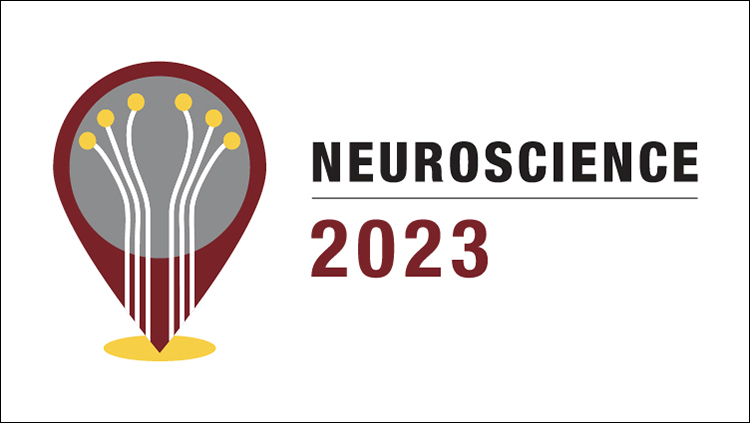Q&A: Tianqiao and Chrissy Chen Institute Founders
 Chrissy Luo and Tianqiao Chen
Chrissy Luo and Tianqiao ChenTianqiao Chen and his wife, Chrissy Luo, are the founders of Shanda Group (formerly Shanda Interactive Entertainment). They founded the Tianqiao and Chrissy Chen Institute (TCCI) in 2016 with a $1 billion commitment to help advance brain science. Their vision is to help improve the human experience by understanding how our brains perceive, learn, and interact with the world.
In 2016, the Chens launched two institutes: the Tianqiao and Chrissy Chen Institute for Neuroscience at the California Institute of Technology (Caltech); and, in partnership with the Shanghai Zhou Liangfu Medical Development Foundation, Huashan Hospital, and Shanghai Mental Health Center, the Tianqiao Chen Institute for Translational Research. The Chen Frontier Lab for Applied Neurotechnology opened in October 2020, and the Chen Frontier Lab for AI and Mental Health opened in July 2021. Both labs are in Shanghai.
Neuroscience Quarterly (NQ): The Tianqiao and Chrissy Chen Institute (TCCI) was founded in 2016. Why focus on neuroscience?
One was related to the online game company we founded — we could see millions of people in the community react differently to a change we’d make, and we were curious why some people reacted one way and other reacted another to the same thing.
CL: We took several years to make this decision, after speaking to many experts in several different fields. We were interested in neuroscience for a number of reasons. One was related to the online game company we founded — we could see millions of people in the community react differently to a change we’d make, and we were curious why some people reacted one way and other reacted another to the same thing.
TC: Another reason is because at the height of the company’s success, I started experiencing severe panic attacks. We moved to Singapore to pursue a less stressful life and in 2012 began privatizing Shanda’s public assets and focusing more on philanthropy. What is happening in a person’s brain when these attacks take place?
NQ: Neuroscience is a large field with many funders and stakeholders. What needs do you see in the field that you believe TCCI is well-positioned to address?
CL: We are very focused on supporting fundamental brain research, which can lead to a better understanding of the brain, including how it works at a cellular or synaptic level, and how we learn, perceive, and develop. We think that with this understanding scientists can eventually “free the mind” from disease and mental disorders, improve memory, sleep, and learning, and inform the next generation of artificial intelligence (AI). We also believe this could lead to “freeing the body.” In other words, using the brain to control exoskeletons, robots, or prosthetics, being able to feel what a prosthetic hand or foot is touching, etc.
TC: We can also help in other ways because we bring an entrepreneurial mindset to neuroscience. For example, AI can greatly accelerate the pace of science, so we have organized and supported AI summer schools around the world. We’re also currently in the process of setting up several AI centers that scientists will be able to tap into. We always try to facilitate new interdisciplinary approaches to brain science and we come up with innovative ways to support young scientists so they can drive the next big breakthroughs.
NQ: TCCI has its attention on three key areas — brain discovery, brain treatment, and brain development. What goals are you trying to achieve in funding these particular fields of research?
TC: Brain discovery refers to the fundamental brain science programs we support, such as the Institute we created at Caltech, for example. There’s so much we still need to understand about the brain in order to unlock its full potential. That kind of knowledge will enable treatment of everything from sleep disorders to neurodegenerative diseases. Brain development is one of the most exciting parts — imagine if you could enhance your knowledge of something with a single click or cast your consciousness to a device deep in the sea.
NQ: What methods or programs does TCCI use to support neuroscience researchers, institutions, and meetings?
TC: We have been steadily building a supportive “ecosystem” since we created TCCI. One of the first steps we took was establishing TCCI for Neuroscience at Caltech. Not only does it bring together all the disparate brain-focused programs from across the university, but it also includes the Chen Fellows Program, innovation grants, etc. On the translational side, we created institutes at Fudan-affiliated Huashan Hospital and Shanghai Mental Health Center in Shanghai.
Our conference support program was one of our first efforts in supporting neuroscience, and we now support hundreds of neuroscience meetings around the world every year.
To support early and mid-career scientists, we recently created a fellowship program. It supports AI and data scientists, physician scientists, and those working on both fundamental and translational research with financial and professional support.
CL: Our conference support program was one of our first efforts in supporting neuroscience, and we now support hundreds of neuroscience meetings around the world every year. We’re shifting into a new phase of the program where we will start designing and hosting our own meetings.
NQ: TCCI recently partnered with SfN to fund a cohort of undergraduate students, graduate students, and postdoctoral fellows with both a Trainee Professional Development Award (TPDA) and a Chen Institute Science Writer Fellowship. What is the institute’s rationale for enabling scientific meeting attendees to report on their meeting experience?
CL: The Chen Institute Science Writer Fellowship was created with several objectives in mind. First, we wanted to extend the conversations that occur at each meeting to those who were not able to attend. Our writers capture key themes, issues, and big questions from the meeting. Second, we wanted to support young researchers in developing their scientific storytelling capability. Finally, in addition to the TPDA support to attend the meeting, Chen Science Writers get free entry and an honorarium so we’re supporting them very practically in that way.























